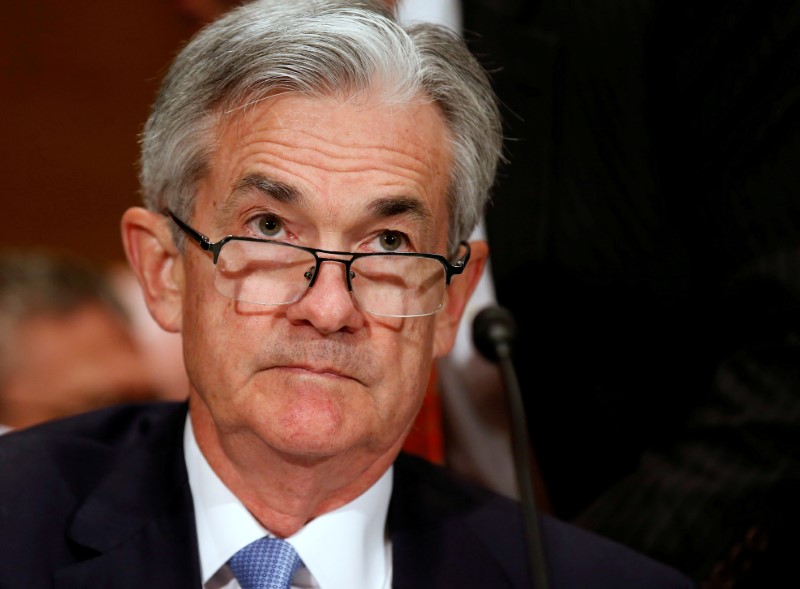(Bloomberg View) -- Jerome Powell did his best to avoid taking a hard position on much, as is the time-honored practice of Senate confirmation hearings.
Even so, he let slip a few intriguing tidbits. Powell said under questioning from Republican Dean Heller of Nevada that the case is coming together for an interest-rate increase next month. That was probably the easy part: As a Fed governor, Powell signed up to the central bank's projections published in September that signaled just that.
Beyond December, Powell didn't stray too far from the type of language that peppers Fed speeches and Federal Open Market Committee statements. The world's greatest deliberative body didn't press him on it; a fair number of questions were designed to bait him on tax cuts. He was never going to touch that.
The weak questions were a wasted opportunity and a disservice to the voters.
Powell doesn't entirely get a pass here. He wasn't forced to address the real point of reckoning, and he certainly did not voluntarily venture to do so: What happens if inflation fails to get back to a healthy pace?
A December rate hike was probably already a done deal. What about the three increases penciled in by the FOMC for next year? Does the committee press ahead if inflation just goes nowhere? Powell signed up to those projections.
Richard Shelby, a former chairman of the Banking Committee, suggested to Powell that the Fed doesn't know why inflation isn't higher. No, we don't, the nominee responded. If it stays low, the Fed could raise rates more slowly. But that remark had a very 30,000-foot, academic feel about it. He wasn't proposing a concrete policy response.
On the other side of the Fed mandate, senators would have been just as entitled to seriously probe what happens if the jobless rate continues to grind lower. While gross domestic product has kind of bumped along around 2-and-a-bit percent, unemployment has consistently surprised on the downside. And that's a good thing.
Should that trend continue, we could be looking at a jobless rate well below 4 percent in a year. (It's 4.1 percent now.) Is that the point at which wage growth starts to accelerate? And do policy makers take the risk that it won't?
The big questions went unasked. There's no mystery why: Powell's trying to play it safe and get confirmed, and most senators want soundbites.
Hopefully Janet Yellen, having been passed over for another term as Fed chair, will decide she has little to lose. She testifies to Congress's Joint Economic Committee on Wednesday. I'm rooting for some greater candor.
This column does not necessarily reflect the opinion of the editorial board or Bloomberg LP and its owners.
Daniel Moss writes and edits articles on economics for Bloomberg View. Previously he was executive editor of Bloomberg News for global economics, and has led teams in Asia, Europe and North America.
